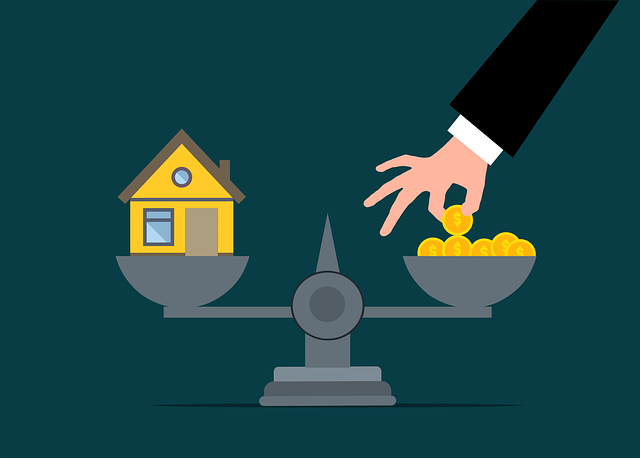Understanding what does business insurance cover, particularly property and casualty aspects, is crucial for safeguarding businesses from unforeseen events like fires, theft, natural disasters, accidents, and legal liabilities. It offers financial protection for physical assets, inventory, liability claims, business interruption, and specialized coverages tailored to unique industry risks. Small businesses need customized solutions for their specific operations, equipment, and intellectual property. Knowing the claims process ensures effective navigation during loss events, emphasizing the importance of knowing what your business insurance policy actually covers.
In today’s unpredictable business landscape, securing adequate property and casualty coverage is paramount. This comprehensive guide explores what does business insurance cover, delving into essential components protecting your physical assets, operations, and more. From understanding property insurance to navigating claims processes, we demystify key aspects crucial for small businesses. Discover how liability protection, business interruption, and specialized coverages safeguard your venture from common perils and legal claims.
Understanding Property Insurance: Protecting Your Physical Assets

Understanding Property insurance is a crucial aspect of protecting your business’s physical assets, which are often its most valuable resources. This type of coverage compensates for damage or loss to structures, such as buildings and inventory, due to unforeseen events like fire, theft, vandalism, or natural disasters. It’s essential to know that property insurance doesn’t just cover the structure itself but also the belongings inside, ensuring your business can recover and continue operations after a disruptive event.
When considering what does business insurance cover, property coverage is a cornerstone of protection. This includes replacement costs for damaged or stolen items, up to the limits specified in your policy. For businesses with valuable equipment, inventory, or real estate, this type of insurance provides financial security and peace of mind.
Casualty Coverage: Ensuring Peace of Mind for Your Business Operations

Casualty coverage is a crucial component of any comprehensive business insurance policy, offering protection against unforeseen events that could disrupt or damage your operations. This type of coverage steps in when accidents happen, whether it’s a slip-and-fall incident on your premises, property damage from a storm, or even legal liabilities arising from customer injuries. Understanding what business insurance covers in terms of casualty is essential for safeguarding your financial stability and ensuring peace of mind.
By having the right casualty coverage, businesses can protect themselves from potential losses, including medical expenses, legal fees, and compensation claims. This proactive approach allows entrepreneurs to focus on growth and success while knowing that their operations are shielded from unexpected setbacks. When considering what does business insurance cover, it’s vital to explore casualty options tailored to your specific needs, ensuring a safety net for your business during uncertain times.
Common Perils and Risks Covered in Business Insurance Policies

Business insurance policies are designed to protect against a wide range of potential perils and risks that can impact a company’s operations and financial stability. When it comes to property coverage, business insurance typically includes protection against common hazards such as fire, lightning, windstorms, hail, and other natural disasters. These events can cause significant damage to commercial properties, including buildings, inventory, and equipment.
In addition to natural disasters, what does business insurance cover also extends to man-made risks like theft, vandalism, and civil unrest. Policies may also include coverage for business interruption, which compensates businesses for lost revenue and ongoing expenses during periods when operations are disrupted due to a covered event. This can be crucial in helping companies recover and stay afloat during challenging times.
Liability Protection: Shielding Your Business from Legal Claims

Liability protection is a crucial aspect of business insurance, shielding your company from potential legal claims and financial losses. This coverage compensates for damages arising from accidents, injuries, or property damage that may occur due to your business activities. When you have liability protection, legal fees and settlements are covered, providing a safety net against costly lawsuits.
Understanding what does business insurance cover in terms of liability is essential for any company. It includes protection against claims of negligence, product liability, and personal and advertising injury. This ensures that if a customer slips and falls on your premises or sues over a faulty product, your business is protected, allowing you to focus on running and growing your enterprise without the burden of unexpected legal expenses.
Business Interruption: Continuity and Recovery Support

Business Interruption coverage is a critical component of property and casualty insurance, offering invaluable support for businesses facing unforeseen disruptions. This type of coverage provides financial protection during periods when operations are halted due to covered events like natural disasters, cyberattacks, or civil unrest. It aims to restore business continuity by compensating for lost revenue and additional expenses incurred while the business works towards recovery.
When a business is forced to close temporarily, this coverage can help meet ongoing obligations such as employee salaries, lease payments, and utility bills. Moreover, it assists in the cost of temporary relocation or alternative work facilities to keep operations running smoothly. Understanding what does business insurance cover in these scenarios ensures businesses are prepared for potential disruptions and have a safety net for recovery and longevity.
Specialized Coverages for Specific Business Needs

Many businesses require more than a standard commercial policy to adequately protect themselves from potential risks and losses. This is where specialized coverages come into play, designed to address unique needs across various industries. For instance, businesses in construction or renovation may need liability coverage for property damage or personal injury during their operations, beyond what a general policy offers. Similarly, restaurants must consider coverages related to food spoilage, equipment failure, and even employment practices, given the specific risks they face.
These specialized policies offer tailored solutions by adjusting limits, adding endorsements, or providing additional types of coverage to meet specific business demands. For example, a technology startup might require cyber liability insurance to protect against data breaches, while an e-commerce business may need coverage for online transactions and data privacy issues. Understanding these diverse needs is key to ensuring what does business insurance cover aligns precisely with each company’s requirements.
The Importance of Customized Insurance Plans for Small Businesses

Small businesses often face unique risks that require tailored insurance solutions. One-size-fits-all policies may not adequately address their specific needs, leaving them vulnerable to financial losses. Customized property and casualty coverage is essential for safeguarding these enterprises against potential hazards. By evaluating their operations, assets, and liabilities, insurers can design comprehensive plans that offer the right balance of protection.
These tailored insurance plans ensure that what does business insurance cover aligns perfectly with each company’s requirements. For instance, a small restaurant might require coverage for equipment failure or food contamination, while a tech startup may need protection for intellectual property theft. Customization allows businesses to rest easy, knowing they are prepared for the specific challenges they face, thereby fostering growth and peace of mind.
Navigating the Claims Process: What to Expect After a Loss

After experiencing a loss, whether it’s damage to property or an accident involving employees or clients, understanding the claims process is crucial. The first step involves contacting your insurance provider as soon as possible to report the incident. They will guide you through the initial steps, which often include documenting the loss, taking photos, and gathering relevant information.
The insurer will then assign a claims adjuster who will assess the situation, verify coverage under your business insurance policy (which often includes property damage and liability protections), and determine the amount of compensation due. This process can take some time, so it’s essential to remain patient and responsive throughout, providing any additional information or documentation requested by the insurer.
